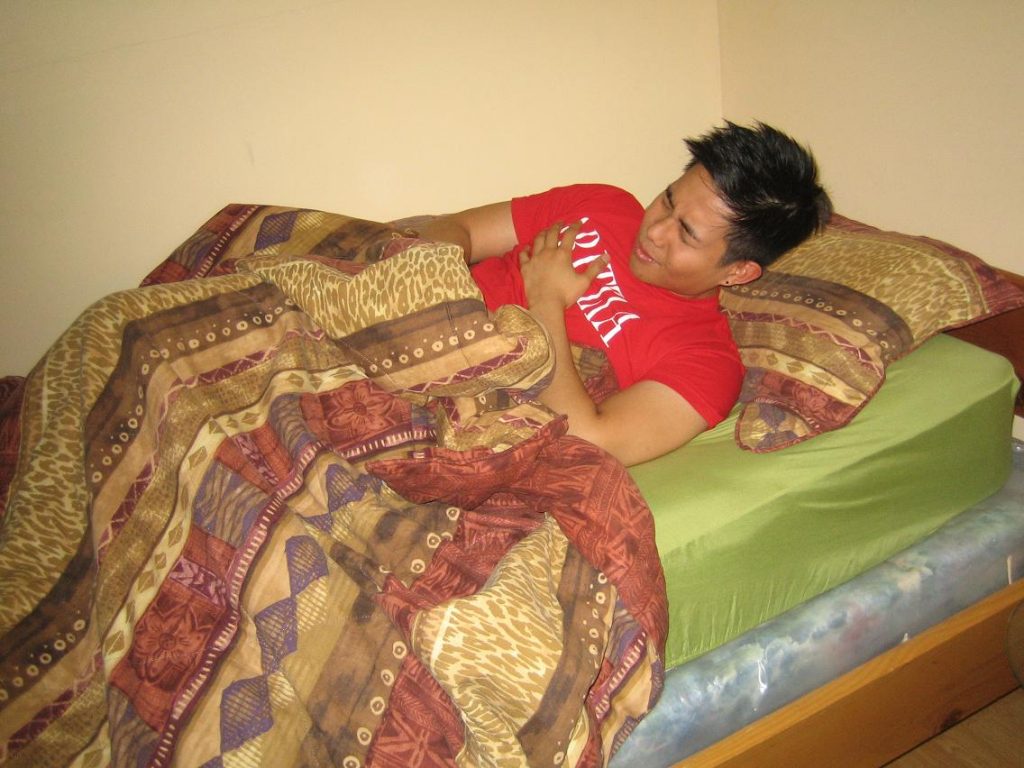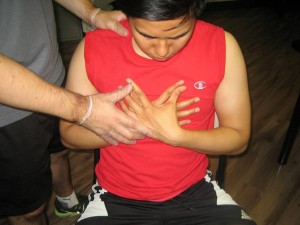Bronchospasm is the constriction of the bronchi and bronchioles which happens due to an inflammation of the airways, spasm in the smooth muscles of the bronchi and bronchioles and excessive generation of sputum or mucus brought about by an allergic reaction.
It can also be due to mechanical resistance of air caused by stress. Overcooling or dryness of airways such during exercise-induced asthma. Bronchospasm happens due to infections, allergy, and contact of irritants with bronchus or certain medications.
Symptoms of bronchospasm
- Difficulty breathing especially at night and early in the morning and while performing exercises.
- Air passing through the contracted bronchi causes a “wheezing” or whistling sound while inhaling.
- Chest tightness and pain
Difficulty breathing especially at night and early in the morning and while performing exercises. - Explosive cough with sputum
Causes
- Allergy
- Irritants such as inhaling chemical smoke, strong odor, cigarette smoke and dry cold air which causes irritation of the bronchi muscles and result to spasm.
- Upper and lower respiratory tract infection causes spasm of the smooth muscles in bronchus such as cold or flu.
- Performing strenuous exercises
- Strong emotional response
- Some people are susceptible to bronchospasm due to heredity.
Treatment
- Take the prescribed bronchodilators to open airways, proper airflow and improve breathing.
- Take the prescribed anti-inflammatory medication to lessen the bronchial inflammation and excessive production of the mucus. It makes breathing less difficult.
- Give cardiopulmonary resuscitation if the person is not breathing or the heartbeat stops.
- Perform breathing techniques such as yoga to lessen the episode and prevent symptoms of bronchospasm.
- Close all doors in the shower room and run the shower in hot setting. Inhale the steam coming from the hot shower to give relief from difficulties in breathing or congestion. Essential oils can be added such as chamomile and peppermint.
- Gargle using salt water solution. In a glass filled with warm water, add 1 teaspoon of salt. Mix until salt is totally dissolved and gargle the solution for at least 15 seconds and rinse the mouth using plain water.
- Wash the nose using salt water every day to clear the airways and easy breathing.
- Drink plenty of water at least 6-8 glasses of water every day to prevent dehydration.
- Maintain an ideal weight to lessen the symptoms of acute bronchospasm.
Tips
- Keep domestic spaces ventilated and clean.
- Avoid sudden changes in temperature.
- Avoid direct contact with allergens that result to an allergic reaction.
- Get vaccination against respiratory infections to lessen the chances of developing respiratory infections and bronchospasm
- Stop smoking.
FACT CHECK
https://www.healthline.com/health/bronchospasm

